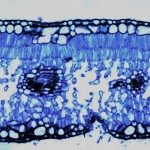Lien vers Pubmed [PMID] – 22666350
PLoS ONE 2012;7(5):e37360
BACKGROUND: Early detection and confirmation of cholera outbreaks are crucial for rapid implementation of control measures. Because cholera frequently affects regions with limited laboratory resources, rapid diagnostic tests (RDT) designed for field conditions are important to enhance rapid response. Stool culture remains the “gold standard” for cholera diagnosis; however, its lack of sensitivity may lead to underestimation of test specificity. We evaluated the Crystal VC® immunochromatographic test (Span Diagnostics, India) for cholera diagnosis using a modified reference standard that combines culture-dependent and independent assays, or a Bayesian latent class model (LCM) analysis.
METHODOLOGY/PRINCIPAL FINDINGS: The study was conducted during a cholera epidemic in 2008, in Lubumbashi, Democratic Republic of Congo. Stools collected from 296 patients were used to perform the RDT on site and sent to Institut Pasteur, Paris, for bacterial culture. In comparison with culture as the gold standard, the RDT showed good sensitivity (92.2%; 95% CI: 86.8%-95.9%) but poor specificity when used by a trained laboratory technician (70.6%; 95% CI: 60.7%-79.2%) or by clinicians with no specific test training (60.4%, 95% CI: 50.2%-70.0%). The specificity of the test performed by the laboratory technician increased to 88.6% (95% CI: 78.7-94.9) when PCR was combined with culture results as the reference standard, and to 85.0% (95% CI: 70.4-99.2), when the Bayesian LCM analysis was used for performance evaluation. In both cases, the sensitivity remained high.
CONCLUSION: Using an improved reference standard or appropriate statistical methods for diagnostic test evaluations in the absence of a gold standard, we report better performance of the Crystal VC® RDT than previously published. Our results confirm that this test can be used for early outbreak detection or epidemiological surveillance, key components of efficient global cholera control. Our analysis also highlights the importance of improving evaluations of RDT when no reliable gold standard is available.


